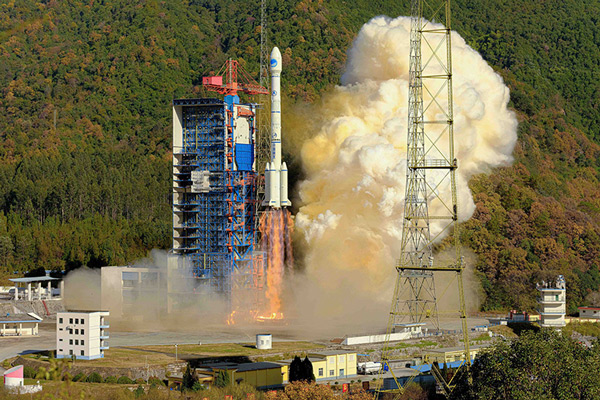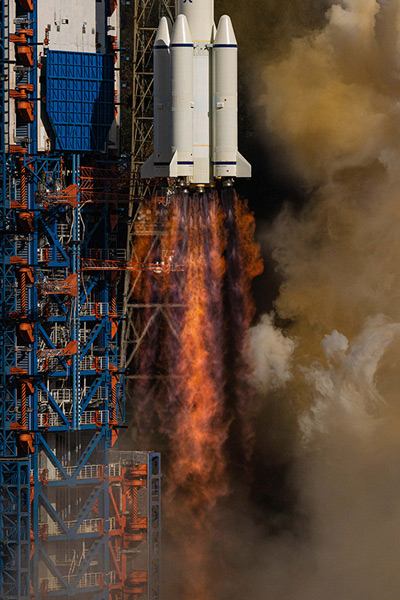
XICHANG — China successfully sent two satellites of the BeiDou Navigation Satellite System (BDS) into space from Xichang Satellite Launch Center in Sichuan province at 3:22 pm on Dec 16.
The launch means all the 24 medium earth orbit (MEO) satellites of the BDS-3 have been successfully sent into space, and the deployment of the core BDS-3 constellation system has been completed, according to Yang Changfeng, chief designer of the BDS.
"BDS now has the full capacity for global service. It will be able to provide excellent navigation service to global users," Yang said.
China started to build the BDS-3 system in 2009. The system, independently constructed and operated by China, consists of three geostationary orbit satellites, three inclined geosynchronous orbit satellites and 24 MEO satellites.
MEO satellites are the main satellites of the BDS-3, said Wang Ping, chief designer of the BDS-3 satellites. According to the design, the 24 MEO satellites are evenly distributed over three orbital planes at an altitude of about 20,000 km and each orbital plane has eight satellites.
The design enables every location worldwide to be covered by five to six satellites at any time, which is the precondition for the system to provide global service, Wang said.
Launched on a Long March-3A carrier rocket, the two satellites entered their preset orbit after a flight of more than three hours.
The launch was the 321st mission for the Long March series carrier rockets and the 108th mission for the Long March-3A carrier rocket.
Jiang Jie, academician of the Chinese Academy of Sciences and chief designer of Long March-3A carrier rockets, said since the launch of the first BDS-2 test satellite in 2007, the Long March-3A carrier rockets have successfully sent 53 BDS satellites into orbit in 38 missions.
So far, all the BDS satellites were sent into space from the Xichang Satellite Launch Center and all the launch missions were successful, said Wang Zemin, deputy director of the launch center.
The first BDS-3 satellite was sent into space in 2017 and the basic BDS constellation deployment was completed at the end of last year, enabling the system to provide global service two years ahead of schedule.
